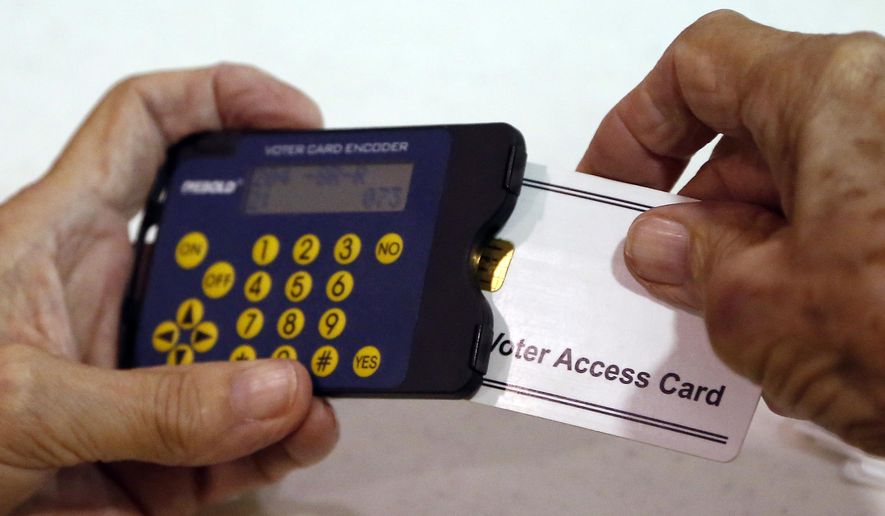President Obama on Thursday blasted state voter ID laws and urged Congress to strengthen the federal Voting Rights Act, once again wading into a racially charged issue that could become a major dividing point between Republicans and Democrats as the 2016 elections draw closer.
The president specifically took aim at the more than 30 states that have some form of voter ID laws, and he also criticized the Supreme Court for its controversial decision in a key voting rights case two years ago. The high court in 2013 struck down a piece of the Voting Rights Act that required states with a history of racial discrimination to clear any changes to voting laws with the Justice Department before they go into effect.
The president’s comments come on the 50th anniversary of the Voting Rights Act, the landmark 1965 law that helped give African-Americans equal rights at the polls.
But Mr. Obama, his Democratic allies in Congress and civil rights activists say equal voting rights still are under attack across much of the country.
“Fifty years ago, registering to vote across much of the South meant guessing the number of jellybeans in a jar or bubbles on a bar of soap. And while the Voting Rights Act broke down many of the formal and more ridiculous barriers to voting, today — in 2015 — there are still too many barriers to the vote, and too many people trying to erect new barriers to the vote,” the president said in an op-ed posted on Medium. “They’re even written into the code of law in some parts of our country — provisions specifically designed to make it harder for some people to vote. Laws that roll back early voting. Laws with restrictive photo ID requirements. Laws that lead to improper purges of voter rolls.”
Mr. Obama, who spoke about the issue briefly at the White House Thursday, also urged Congress to pass legislation that would strengthen the Voting Rights Act, though the measures appear to be going nowhere on Capitol Hill.
Across the country, many Republicans generally have supported voter ID laws, and the issue is likely to find its way into the 2016 presidential contest. Supporters of such laws, including many Republican candidates for president, say they cut down on voter fraud by requiring Americans to bring identification to the polls.
Opponents, including virtually all Democrats, say the laws disenfranchise minority voters who are less likely to have the needed ID.
A federal appeals court on Wednesday agreed with those opponents, ruling that Texas had discriminated against black and Hispanic voters with its voter ID law, considered to be among the strictest in the country.
As the issue continues to play out in court and in states across the country, leading Republicans are quick to point out that the heart of the Voting Rights Act remains intact. They also say it’s important to keep in mind just how much things have changed in America since the Voting Rights Act became law 50 years ago.
“The Supreme Court, of course, did not strike down the Voting Rights Act. Racial discrimination in voting remains the law of the land,” Senate Majority Leader Mitch McConnell told reporters Thursday. “But I think it is also important to understand how different the south is now. Haley Barbour, he used to be governor of Mississippi always pointed out there are more African-American elected officials in Mississippi than any other states in America. America’s come a long way, and the Voting Rights Act is intact, it was not struck down.”
Beyond voting laws, Mr. Obama also chastised Americans who, while legally able to vote, choose not to do so.
SEE ALSO: Obama’s Clean Power Plan faces opposition from black, Hispanic leaders
“Today, we don’t just do ourselves — and this country — a disservice when we choose not to exercise that fundamental right. We dishonor those who fought so hard to give us that right in the first place,” he said. “All of us have to play a part as citizens. If you run a business, you can make a commitment to give your workers time off to vote. You can use your time to volunteer to help register new voters. And at the very least, you can get ou
• Ben Wolfgang can be reached at bwolfgang@washingtontimes.com.




Please read our comment policy before commenting.